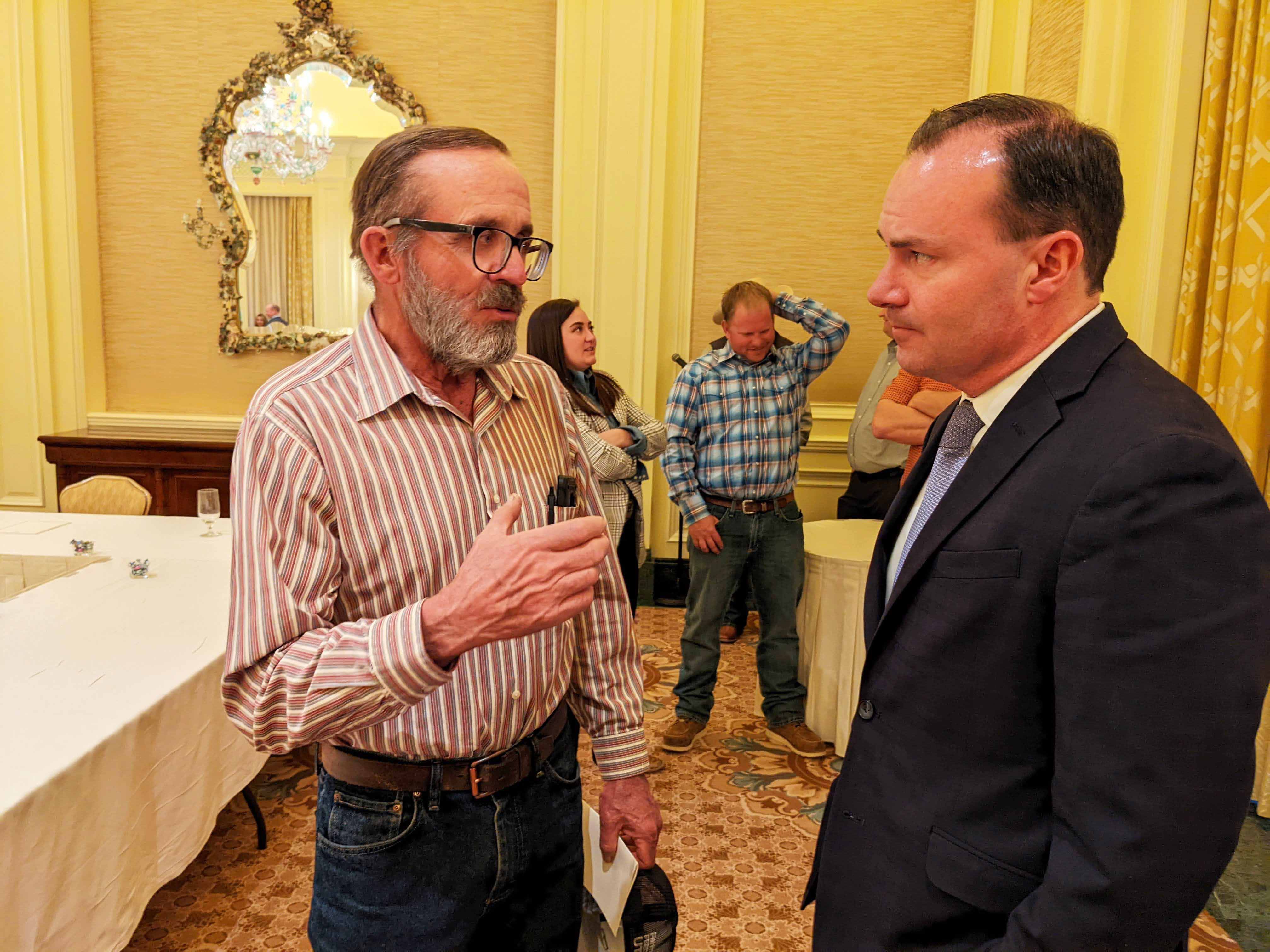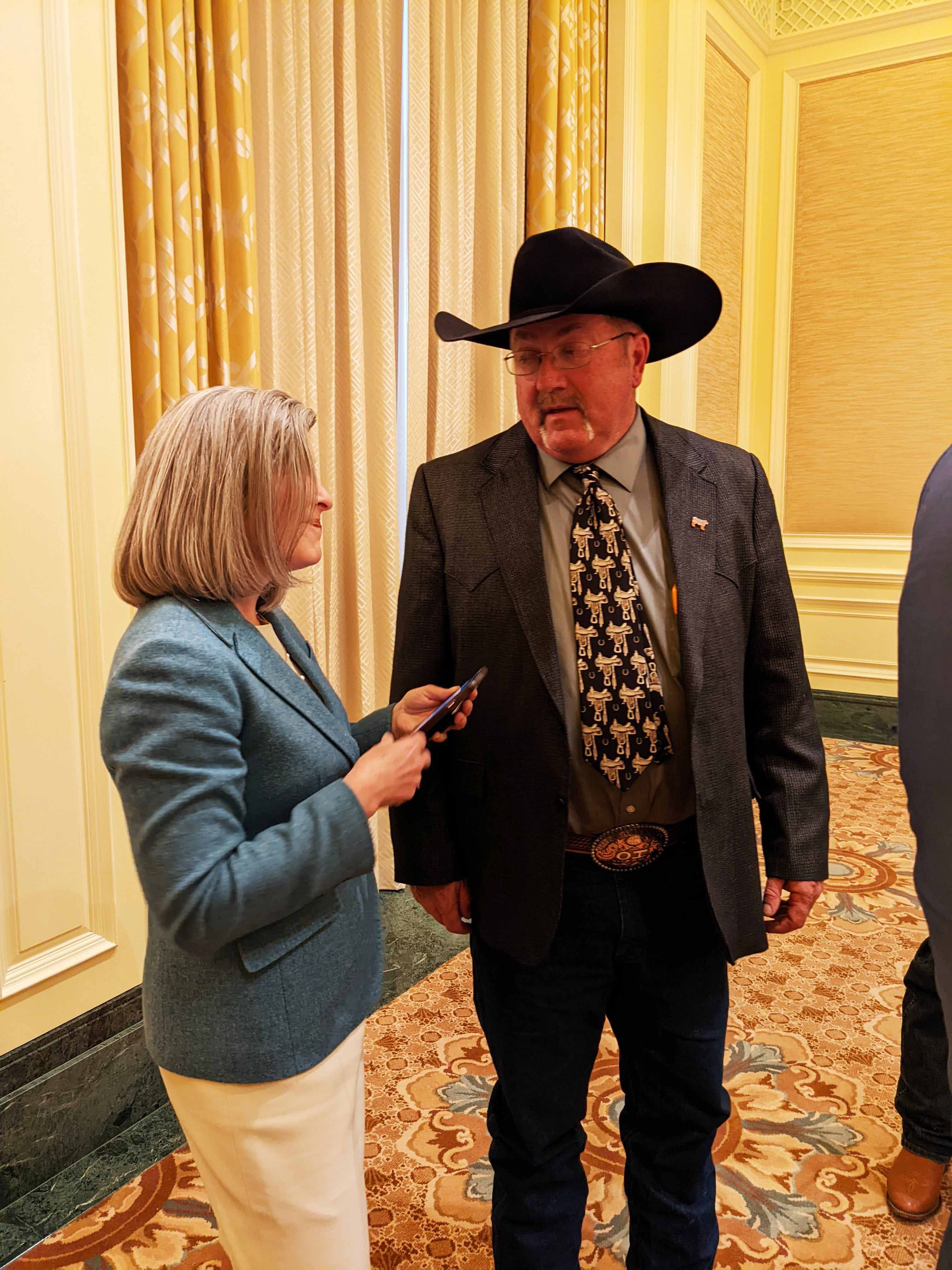Utah Farm Bureau Leaders Visit with Sen. Mike Lee & Sen. Joni Ernst in SLC
Published
4/27/2022
Accepting an invitation to talk about current agricultural issues, Utah Farm Bureau leaders and farmers & ranchers representing a swath of Utah agriculture met with Senator Mike Lee and Iowa Senator Joni Enrst recently in Salt Lake City. Ernst serves on the U.S. Senate Agriculture, Nutrition, and Forestry Committee and was in attendance at the invitation of Sen. Lee. Ernst grew up on a row crop and hog farm in Iowa.
“It was a great opportunity to share our concerns for how things are going right now, and what could help agriculture weather the current difficult circumstances and thrive in the future,” said Ron Gibson, President of the Utah Farm Bureau and a dairy farmer from Weber County. “With the cost of fertilizers up two or three times what they were last year, not to mention the cost of fuel, tires, labor, etc., we are in some difficult times. But I am confident we can make it through.”
Since 2013, farmers have seen nearly all production expenses increase. Most notably, livestock and poultry farm-origin expenses have increased 46% and marketing, storage and transportation expenses have increased 59%. Overall, the intermediate expense category, which includes the majority of the farm production inputs, has increased 18% since 2013.
 Davis County Farmer Neal Briggs (left) visits with Senator Mike Lee in Salt Lake City.
Davis County Farmer Neal Briggs (left) visits with Senator Mike Lee in Salt Lake City.From 2021 to 2022, USDA estimates total production expenses to increase 5%; that’s after a 9% increase from 2020 to 2021. The largest expected production expense increase in 2022 is fertilizer, increasing 12% from 2021 to 2022, after a 17% increase from 2020 to 2021.
After opening remarks from Senators Lee and Enrst on things they are working on, farmers were able to share some of their experiences and the situations they’re facing currently. Both senators talked about concerns with federal spending and the role it has placed in inflation, Constitutional concerns with recent Waters of the United States (WOTUS) proposals, local energy production, and regulatory reform.
Fruit farmer Chris Riley talked about the challenges faced by Mother Nature, having just lost an estimated 90 percent of his cherries from an early spring frost. But what concerned Riley most was the costs associated with labor, their variability, and the challenge of seeing how long agriculture can hold on while congress talks about fixing immigration and labor.

Rich County rancher Tracy Hatch (right) visits with Iowa Senator Joni Ernst in Salt Lake City.
Several ranchers shared their concerns about current proposals to roll back recent NEPA reforms during President Trump’s administration.
While these complex concerns aren’t resolved in a single meeting, those in attendance recognize the need to continue pushing their issues of concern, sharing personal examples of how laws and regulations impact their ability to produce food for America, and building relationships with local, state and federal lawmakers.
Want more news on this topic? Farm Bureau members may subscribe for a free email news service, featuring the farm and rural topics that interest them most!
